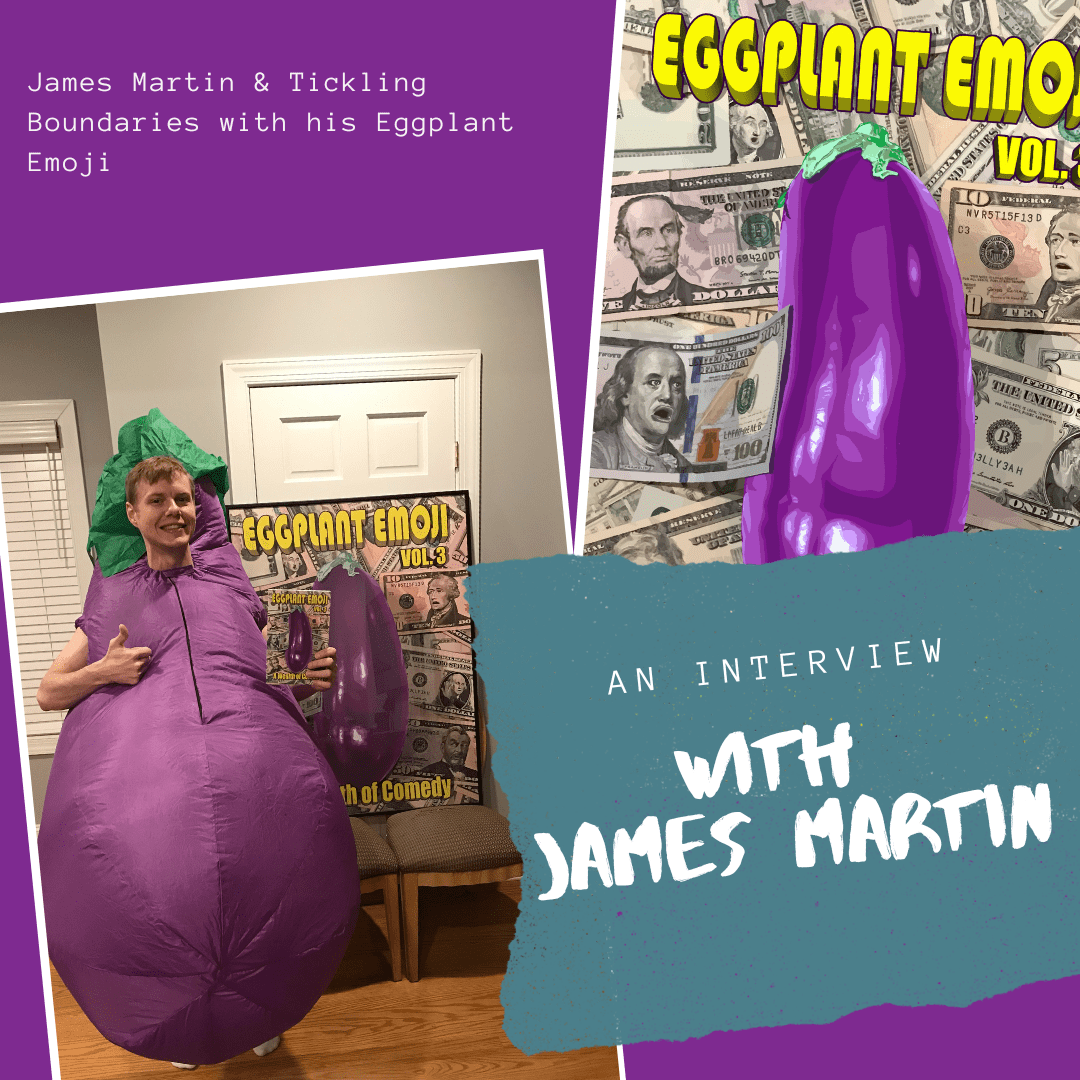The Horror Tree Presents…An Interview with Deborah Sheldon
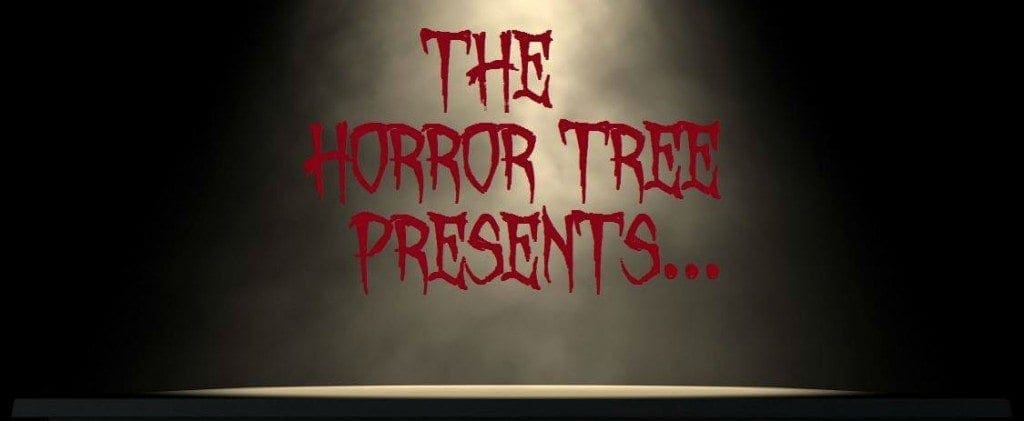
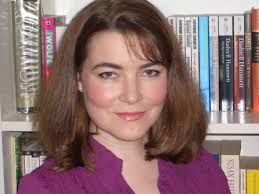 Alyson – Hi Deborah and welcome to the Horror Tree. Can you tell us a little about yourself and what got you started as an author?
Alyson – Hi Deborah and welcome to the Horror Tree. Can you tell us a little about yourself and what got you started as an author?
Deborah – I live in Melbourne, Australia, and I’ve been a professional writer for over 30 years. As a pre-schooler, I used to draw my stories or act them out with toys. At the age of about 11, I realised I wanted to be a writer. Without writing, I would be lost.
I sold my first piece of writing – a feature article about steroids in bodybuilding – when I started my Bachelor of Arts degree in 1986. After university, I travelled overseas and ended up in London writing for a paper. When I got back to Melbourne, I segued from feature articles to TV writing, and spent four years or so researching, writing and script-editing various Australian television programs. After that, I focused my energies on medical writing, scriptwriting and non-fiction books.
In 2005, I sold my first short story, and soon after began writing fiction in earnest. I shifted from crime fiction to horror in 2014. Since then, my work has been shortlisted for numerous Australian Shadows Awards and Aurealis Awards, long-listed for a Bram Stoker Award, and included in various ‘best of’ anthologies.
Alyson – You’ve written across a range of genres, but what is it about writing horror that attracts you?
Deborah – The challenge. Film or TV uses not just the script but visuals, audio and music to achieve jump scares. It’s tough to frighten or creep out someone with just printed words on a page. The horror genre also attracts me because it explores the terrors of being human. Knowing that one random day you will die and rot, and – even worse – the same fate will befall the ones you love is difficult to accept. We have to live in a weird and constant state of denial just to get out of bed every morning.
And lastly, horror writing is cathartic. I can’t tell you how many terrible experiences, memories, anxieties and fears I’ve ‘exorcised’ via my computer keyboard. A psychiatrist reading my horror fiction could have a field day.
Alyson – What are your favourite horror films? Do they inspire any of your stories?
Deborah – I have a great love for old Hollywood black-and-white films. The censorship at the time meant that writers and directors couldn’t show violence, sex or gore. With no choice but to rely on story, dialogue, pacing, mood, and lighting, they delivered incredible films that, in my opinion, leave most of today’s horror films in the dust.
A favourite of mine is The Body Snatcher starring Boris Karloff in what was, I think, one of his first roles without prosthetics or heavy makeup. Creepy, atmospheric, chilling; you can’t tear your eyes away from the screen for a second. Another favourite, also produced by Val Lewton, is Cat People. The shoestring budget didn’t allow for special effects, so the ‘werecat’ sequences used sound effects, shadows and suspense. The first time I viewed this film – just a few years ago – I had to watch the scary parts through my fingers like a kid! And of course, Hitchcock’s Psycho is a tour de force that needs no introduction.
And then there are scenes from so many other old films that stay with me: the heroine being led through the sugarcane fields in I Walked with a Zombie; the one unexpected jump-scare in The Thing From Another World that made me yelp and literally jump off the couch in fright; the shadow advancing up the stairs in Nosferatu; and when the heroine is swimming freestyle in The Creature from the Black Lagoon while the creature is a few metres below her, unseen, watching her, matching her stroke for stroke: *shudder* I could go on and on! There are too many more to mention.
My favourite relatively-modern horror film is John Carpenter’s The Thing. Yes, it is intensely gory and shocking, but it’s the script that amazes me. It’s a superbly written and nerve-wracking study of identity, trust, and paranoia. Other favourites: The Terminator, Terminator 2: Judgement Day, Alien, and Aliens. Oh, and let’s not forget Predator. Have I missed any? Probably. Too many to mention.
All horror films inform my writing, but particularly the older ones. A lot can be done with setting, characters and dialogue to provoke goose bumps, and the classic film-makers knew – and often invented – the tricks.
Alyson – Can you tell our readers who are your favourite authors?
Deborah – Once again, far too many to mention them all by name!
I’m a voracious reader of short stories, so I’m constantly devouring anthologies and collections, both new and classic, and admiring the skill of the writers. Perhaps one of the best anthologies I’ve ever read is Dead of Night: the best of Midnight Echo magazine. Australia and New Zealand have tremendously talented horror writers, and this anthology is all the proof you’ll ever need. (Please note: I happen to have a story in this one, but that hasn’t skewed my opinion. Purchase a copy and see for yourself.)
Some of my favourite horror novels include The Handmaid’s Tale, The Haunting of Hill House, The Shining, The Life and Loves of a She Devil, The Exorcist, Whatever Happened to Baby Jane?, Something Wicked This Way Comes, The Silence of the Lambs, Rebecca, and a few hundred others.
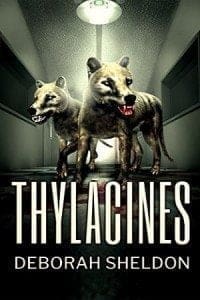 Alyson – Do you have a particular routine to your writing day? Or a special place you write in?
Alyson – Do you have a particular routine to your writing day? Or a special place you write in?
Deborah – I’m an advocate of the ‘Pavlov’s dog’ method: provoke a response by association. For the past 23 years or so that I’ve lived in this house, I have always written in my study. While the furniture and computer may have been updated a few times, the arrangement stays the same. The window is to my right and the door to my left. From sheer repetition, every time I sit in my chair in front of the keyboard, I’m psychologically ready to write. Just like Pavlov’s dog, salivating to the sound of a bell.
Alyson – Do you have a favourite among the books and stories you’ve written?
Deborah – The book or story I’m writing at the moment is always my favourite! I can’t pick any that I prefer over the others. Each piece carries the experience of writing it, the moods I had at the time, the challenges of the subject matter. Each book or story held my full attention and passion during its creation.
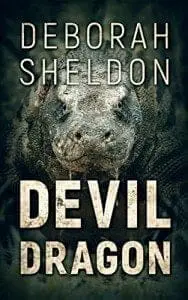 Alyson – How much research do you do for your projects?
Alyson – How much research do you do for your projects?
Deborah – It depends on the project. The most research-intensive was my horror novel, Devil Dragon. I had to learn about palaeontology, herpetology, and gun usage; three topics I knew absolutely nothing about. I wanted the story to be as realistic as possible within its fantasy framework, so once I had exhausted my own methods of research, I reached out to professionals. I’m very grateful to the herpetologists and the CEO of the Sporting Shooters’ Association of Australia who offered their time to check my first draft for technical accuracy.
Similarly, for my horror novella, Thylacines, I needed to learn about de-extinction science and somatic cell nuclear transplantation – but just enough to give the story the feel of authenticity. I spent the most time researching the thylacine, or Tasmanian tiger, to make sure my genetically-modified versions were authentic to a credible degree.
On the other hand, some projects require a different kind of research altogether: a digging into one’s own experiences. My horror novel Contrition, due out mid-year, has two timelines: the present day and the mid-eighties. For the latter, I drew upon memories of my teenage years. In fact, a few people who went to high school with me might even recognise a couple of events, fictionalised and reimagined though they are.
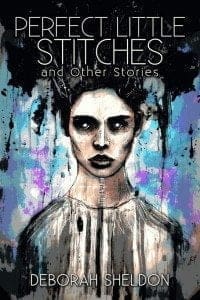 Alyson – How does living in Australia, its landscape and people, shape your stories?
Alyson – How does living in Australia, its landscape and people, shape your stories?
Deborah – Being Australian informs my writing in every conceivable way. It shapes my language, my settings, themes, subject matter, characters – the whole shebang! As an Aussie, I feel the only stories I can truthfully write are Aussie stories. As a reader, I love stories that immerse me into a foreign setting, and that’s what I try to achieve in my own fiction.
My novella Thylacines is about the carnivorous Tasmanian tiger, an Australian marsupial hunted to extinction some eighty years ago. I’ve since learned that not many people – including Australians – know of the Tassie tiger. The same thing happened with Devil Dragon, my novel about a gargantuan reptile that roamed Australia during the Mega Fauna age when all animals were giants. (Ducks were as big as ostriches.) A few readers expressed surprise that such a monster had ever existed.
My collection Perfect Little Stitches and Other Stories includes quintessentially Australian animals and myths, such as the cassowary (a huge, cantankerous bird with claws that can disembowel) and the yowie (Australia’s version of Bigfoot or the Yeti). To me, writing Australian stories is a way of bringing fresh material to readers.
I believe that a writer should be a product of their environment. This is what the old adage ‘Write what you know’ means to me: be authentic to your own voice. Writers in the United States are experts at documenting their own culture, in all its beauty and ugliness, and I greatly admire their pride and honesty.
Alyson – February is ‘Women in Horror’ month here at Horror Tree and elsewhere of course. Why is ‘Women in Horror’ month important?
Deborah – Go into any bookshop and you’ll find a shelf labelled ‘Women’s Fiction’. What you won’t ever find is a shelf labelled ‘Men’s Fiction’. The expectation still lingers that men write across all genres including horror, crime and action, while women are confined to chick lit and romance. I think that’s why some female writers use pseudonyms or initials to hide their gender – they fear being dismissed.
‘Women in Horror’ month is important because it reminds readers that women can and do write butt-kicking, brutal, gruesome, creepy, hair-raising stories.
I don’t think I’ve experienced sexism within the fiction publishing industry – or if I did, it was too subtle for me to notice. My one memorable experience was an editor who told me, ‘Wow, Deb, you write like a man!’ Generally speaking, publishers just want good stories and solid author platforms – they don’t care about gender. The ‘Women in Horror’ month is one way to help nudge readers in the same direction.
Alyson – Writing is a solitary business. How do you interact with other authors?
Deborah – I always have a few projects on the go at once, so I correspond daily with other writers, editors and publishers via email.
I’ve also been a member of various writing groups over the past 10 years or so. I think it’s important to workshop your writing amongst people who are roughly at the same level of proficiency. A fresh pair of eyes can help you polish your prose, and critiquing someone else’s work hones your editing and storytelling skills. Naturally, the workshops involve a lot of chatting and laughing too…
However, most of my workshopping these days is done over the phone. One of my goals this year is to socialise a lot more face-to-face. So, in short, yes, writing is a solitary business!
Alyson – Do you have a preference between writing short stories for a collection such as your 2017’s Perfect Little Stitches and Other Stories or for writing longer works? Do you plan each project by word length beforehand?
Deborah – I honestly don’t have a preference. I love all types of fiction. The demands of short story writing are very different to those of novel writing. Without the luxury of length, a short story must be incredibly precise and balanced. You need to work hard to achieve an emotional impact within just a few pages. The central challenge of the novel, on the other hand, is to find enough substance in your story to keep it running at top speed right to the end. Beginnings are easy. Endings are easy. It’s that long, daunting middle part that’s tricky.
To stave off boredom and writer’s block, I mix up my projects. For example, I might write half a dozen short stories in a row, then work on a longer-form project like a novella or novel.
Yes, I plan each project by word length beforehand. It’s a hangover from my two decades or so as a scriptwriter and freelance journalist. Typically, a 30-minute script for a TV series is about 22 minutes long, built around two commercial breaks. As a scriptwriter, you can’t get creative with that formula! You have to nail the timing or else the script editors are going to scream – and never hire you again. The same goes for a feature article. The magazine editor allocates pages in advance based on your pitched word length. If you promise an article 5000 words long but submit 10,000 or 2500 words instead, the magazine editor will pass on all your future pitches because you can’t be trusted to deliver.
Some writers have asked me if planning my word length beforehand is restrictive. On the contrary, I find it liberating. One of the core challenges to fiction is figuring out how to pin down your story. Deciding on its length is one way to set parameters.
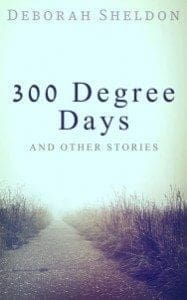 Alyson – You have the bio-horror novella Thylacines out already this year. Do you have other books coming out later in 2018? Can you give us a taster of what to expect please?
Alyson – You have the bio-horror novella Thylacines out already this year. Do you have other books coming out later in 2018? Can you give us a taster of what to expect please?
Deborah – Oscillate Wildly Press has re-released my petite collection, 300 Degree Days and Other Stories, originally published by the award-winning Ginninderra Press in 2014. I would describe the collection as literary with a melancholic bent. Most stories were previously published in well-respected Australian magazines including Quadrant, Island, [untitled], and Tincture Journal. The back-of-the-book blurb reads:
Sheldon’s stories lift the skin of small, suburban lives to expose the raw nerves beneath. Her writing is intimate, compelling and alarming… – The Short Review UK.
Sometimes, the ties that bind are sharp enough to cut. In these eleven stories, set in contemporary Australian suburbia, Deborah Sheldon examines the darker side of family relationships. Unsettling and incisively written, each story of betrayal, envy, loss or bad blood resonates for a long time after reading.
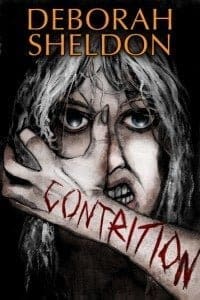 Mid-year, IFWG Publishing Australia is releasing my horror novel, Contrition. I don’t want to give away too much of the plot, so here’s the back-of-the-book blurb:
Mid-year, IFWG Publishing Australia is releasing my horror novel, Contrition. I don’t want to give away too much of the plot, so here’s the back-of-the-book blurb:
In her late teens, Meredith Berg-Olsen had had all the makings of a runway model. Now in her late forties, after everything she had been through – including horrors that John could only guess at – she looked bloodless instead of pale, skeletal instead of slender, more dead than alive...
John Penrose has two secrets. One is the flatmate he keeps hidden from the world: his high-school sweetheart, Meredith. His other secret is the reason he feels compelled to look after her.
Contrition is a horror story with noir undertones and an atmosphere of mounting dread.
Alyson – What are you working on currently as we speak?
Deborah – I have the bulk of my work schedule roughly mapped out for 2018.
First, a horror short story based on my very recent experience of major abdominal surgery. (Yep, I’m still recovering. Ouch.)
Second, a horror novel with plenty of high-voltage action.
Third, I will again be taking part in the Australasian Horror Writers Association’s mentorship program, which will run for about three months. I will be assigned a mentee who is keen to develop their (horror) writing skills to a professional level. I had a great time being a mentor last year in the program’s inaugural run, and I’m looking forward to meeting my new mentee sometime around mid-year.
Lastly, I have a short play being performed in a festival next month. I enjoy playwriting as a break from prose, so I’ll submit a few scripts to other festivals throughout the year and see what happens.
I occasionally write non-fiction articles, so I might do some of those too.
But my schedule is always flexible. You have to yield to the ebb and flow of your desires. If something demands to be written, you must put aside everything else and write the piece while it’s hot.
Alyson – What advice would you give aspiring writers?
Deborah – Focus on the output, not the outcome. By this, I mean focus your energies on writing, not your publication success or failure. Make goals and keep yourself accountable. Setting a minimum word count for the week is a good habit to cultivate. (Mine is 2500 words of a publishable standard, not just first draft.)
Always remember that you are writing for the love of it. Publication, recognition and money may not come for a very long time, if at all. The marketplace is crowded. Thousands of new books are published every day. Rejection rates are high. Don’t focus on these outcomes or you will become discouraged. Concentrate on your output, on improving your writing. Read, read, read. Take it in and learn.
Follow your heart. Write what you want, not what you think the market will buy. Be true to your own voice.
Alyson – Where can readers follow you online?
Deborah – My website is the most up-to-date source of information on my writing. Visit http://deborahsheldon.wordpress.com to browse my titles. Please sign up for my newsletter! The button is on my homepage. You will receive monthly updates, news and giveaways.
I’m not on Facebook myself, but IFWG Publishing Australia runs a Facebook page on my behalf: https://www.facebook.com/Deborah-Sheldon-936388749723500/
And I love being friended on Goodreads: https://www.goodreads.com/author/show/3312459.Deborah_Sheldon
If you want to drop me a line, email me at: [email protected]
Thanks so much for taking the time to read my interview. I hope you found it interesting!
Thank you so much for your time, Deborah!
- About the Author
- Latest Posts
Alyson lives in the UK; her fiction has been published widely in print anthologies – DeadCades, Women in Horror Annual 2, Trembling with Fear 1 &2, Coffin Bell Journal 1 and Stories from Stone and in ezines, most often on the Horror Tree site, Siren’s Call and The Casket of Fictional Delights. In May 2019 Night of the Rider, was published by Demain, in their Short Sharp Shocks! E book series and reached the amazon kindle top 10 best seller lists. Her work has been read on podcasts (eg Ladies of Horror), shortlisted in competitions and published in charity anthologies. Future work will appear in anthologies from Things in the Well, Mortal Realm and Twisted Wing Publishers.
She performs at open mics, teaches, edits and hangs out with her dog on the moor in all weathers.
https://alysonfayewordpress.wordpress.com/
Twitter @AlysonFaye2

